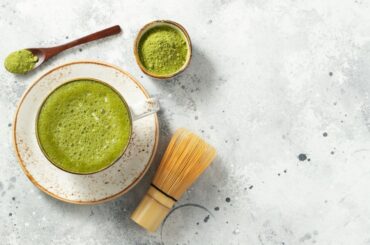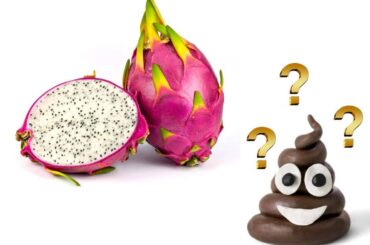Does Watermelon Make You Poop? The answer is yes – but not necessarily right away. Watermelon contains high amounts of both soluble and insoluble fiber, which helps to regulate digestion by adding bulk to stools.

This makes them easier to pass through the intestines and encourages peristalsis – the process of pushing waste along the gut. As such, adding watermelon into your diet on a regular basis may help prevent constipation and maintain regularity over time.
So while it might take some time before you start seeing results from eating watermelon, incorporating this delicious fruit into your diet is definitely worth considering if you’re looking for natural ways to improve your digestive system.
The Role Of Fiber In Watermelon
Yes, watermelon does make you poop. This is because it contains a high amount of fiber. Fiber helps to keep your digestive system healthy by promoting regular bowel movements and aiding in digestion.
Fiber comes in two forms: soluble and insoluble. Soluble fiber dissolves easily in water and slows down the absorption of carbohydrates while helping to maintain blood sugar levels. Insoluble fiber adds bulk to stools, which improves their movement through the intestines and helps them pass more quickly. Watermelons are an excellent source of both types of dietary fibers. They contain up to 6-7g per cup!
These beneficial components help to reduce constipation, bloating, gas, abdominal discomfort and irregularity. Eating plenty of watermelon can also increase hydration since it’s 92% water. So if you’re looking for a way to stay regular or just improve your gut health overall, adding some juicy slices of watermelon into your diet would be a great idea!
Effects Of Watermelon On Digestion
The sweet, juicy taste of watermelon can be downright heavenly. But it’s not just a summertime treat – it could also have a serious impact on your digestive system! Sure enough, like many other fruits and vegetables, the high fiber content found in watermelons helps to keep things moving along nicely in your intestines.
But what sets this melon apart from its counterparts is that it contains an essential amino acid called citrulline which has been known to relax muscles of the digestive tract and promote peristalsis (the movement of food through the gut). As such, eating watermelon can help avoid constipation as well as reduce bloating or cramping after meals.
It’s no wonder then why so many people who suffer from irritable bowel syndrome turn to watermelon for relief. While there are no conclusive studies validating these benefits yet, personal accounts suggest that incorporating more of this delicious fruit into one’s diet may provide some much needed comfort during those tough times. So go ahead and give it a try – you might just thank yourself later!

Benefits Of Eating Watermelon
Hydration
In addition to helping with digestion, eating watermelon is a great way to stay hydrated during the summer months or while exercising. This juicy fruit contains 92% water and provides essential electrolytes like potassium and magnesium which help keep our bodies functioning properly. Plus, it’s low in calories and high in vitamins A and C, making it an ideal snack for those trying to maintain a healthy weight.
Watermelon also has other health benefits such as reducing inflammation and improving cardiovascular health due to its antioxidant content. It may even be beneficial for people who are at risk of developing cancer since some studies have shown that certain compounds found in watermelon may help protect against tumor growth. Finally, the fiber from this delicious fruit helps keep us fuller longer so we don’t feel the need to overindulge on unhealthy snacks throughout the day!
Eating watermelon regularly not only tastes good but can provide numerous health benefits as well. With its hydrating properties, anti-inflammatory effects, heart-healthy nutrients, and satiating fiber – it’s no wonder why so many people love it!
Vitamins And Minarals
It’s packed with vitamins and minerals that are beneficial for our bodies. Let’s take a closer look at these benefits:
Vitamins
- Vitamin A: supports healthy vision, immune system, skin and bones
- Vitamin B6: helps the body create energy from food
- Vitamin C: boosts immunity and assists in wound healing
Minerals
- Potassium: regulates blood pressure, muscle contractions, nerve signals and heart rhythms
- Magnesium: promotes muscle health and bone growth
- Calcium: strengthens teeth and bones
It’s clear to see why eating watermelon is an excellent choice for keeping ourselves healthy! The various components of this fruit work together to provide us with essential nutrients that can help keep us feeling energized and looking great.
## Benefits Of Eating Watermelon:
Transitioning from the vitamins and minerals found in watermelon, another benefit of eating this delicious fruit is that it can help with digestion. It contains large amounts of fiber, which helps keep your digestive system healthy and functioning properly. This means that consuming watermelon on a regular basis can help prevent constipation and other digestive issues as well as aiding in weight loss.
Watermelon also has natural diuretic properties, meaning it’s great for flushing out toxins from your body. Plus, its high levels of electrolytes like potassium and magnesium make it an ideal snack to have during hot summer months or after workouts to replenish lost fluids and salts. In addition, because watermelon is so hydrating due to its high-water content – up to 92% – drinking plenty of watermelon juice will help keep you hydrated throughout the day.
Consuming watermelon regularly may even aid in reducing bloating and gas as it is low in fructose and easy on the stomach when eaten raw, making it a much better choice than sugary sodas or processed snacks if you’re looking for something light yet refreshing. So why not grab yourself some fresh juicy slices next time you’re feeling peckish?
Antioxidant Effects
I’m sure you’ve all heard that watermelon is packed with antioxidants. But did you know it can help improve your digestive health too? That’s right – the natural compounds in this juicy melon have been found to reduce inflammation and even promote healthy bowel movements.
The antioxidant properties of watermelon are primarily due to its high vitamin C content. This powerful nutrient helps protect cells from damage caused by free radicals, which can lead to disease and premature aging. Additionally, vitamin C contributes to a stronger immune system, better circulation, and improved digestion.
Watermelon also contains lycopene – an antioxidant that has been linked to reduced cancer risk, as well as protection against heart disease and stroke. Lycopene may be especially helpful for those suffering from constipation or other digestive issues because it increases bile production which aids digestion.

Drawbacks Of Eating Too Much Watermelon
High Suger
Moving on from the antioxidant benefits of watermelon, there are some drawbacks to consider when it comes to eating too much. One of these is the high sugar content found in watermelon.
A single cup serving can contain up to 11 grams of total sugar. 10 grams coming from fructose alone. Eating excessive amounts might lead to weight gain and spikes in blood sugar levels due to its relatively low-fiber and high-sugar composition. Furthermore, if you’re watching your intake for health reasons or trying to lose weight, then you may want to limit how much watermelon you eat as part of an overall balanced diet plan.
Interaction With Medication
It contains citrulline, an amino acid that has been shown to interact with certain medications like insulin or blood pressure meds. Lastly, its high fiber content may cause stomach discomfort and excessive gas when consumed in large quantities.
Here are a few things to consider before eating a lot of watermelon:
- Be sure to check the label for added sugars and other unhealthy ingredients;
- Speak to your doctor about potential interactions between watermelon and any medications you’re taking;
- Consider limiting your intake of this fruit if you experience any side effects such as bloating or cramping after consuming it.
If you enjoy eating watermelon but want to ensure that it’s not having a negative impact on your health, then moderation is key. Eating smaller portions throughout the day rather than one big serving will help reduce the chance of experiencing adverse reactions from eating too much at once.
| Pros | Cons |
| Sweet taste | High suger |
| Low calorie content | |
| Rich source of vitamins and minerals | Contains a lot of natural sugars |
Tips For Eating Watermelon
Yes, too much watermelon can certainly cause some gastrointestinal issues. But this doesn’t mean that you have to avoid eating it altogether! Here are some tips for enjoying a safe and delicious experience with watermelon:
First of all, make sure to check with your doctor before making any changes to your diet if you’re currently taking medications. It’s important to know how certain foods interact with medication so as not to put yourself at risk. Also, be aware of the amount of sugar found in watermelons — many varieties contain high amounts of natural sugars that may affect blood glucose levels or aggravate any existing conditions.
Finally, when selecting a watermelon look for one that is heavy for its size and has a dull sound when thumped (not too hard!). This indicates that it is ripe and juicy, perfect for slicing up or scooping out into cubes. Enjoy chilled or frozen pieces in small portions throughout the day – no more than two cups per serving – to get the most health benefits without upsetting your stomach.

Recently asked questions
Does watermelon contain a lot of fiber that can help with digestion?
Yes, watermelon contains a decent amount of fiber that can help with digestion. One cup of diced watermelon provides about 0.6 grams of fiber, which is roughly 2% of the recommended daily value.
Are there any other foods that have the same effect on digestion as watermelon?
Yes, there are many other foods that can have a positive effect on digestion. Some examples include: apples, pears, bananas, kiwi fruit, berries, leafy greens, whole grains, nuts, and seeds. All of these foods are high in fiber, which can help keep the digestive system running smoothly.
Is it safe to consume large amounts of watermelon in a short period of time?
In general, it is safe to consume large amounts of watermelon in a short period of time. However, eating too much watermelon can cause some discomfort, such as bloating, diarrhea, or stomach cramps.
Conclusion on Does Watermelon Make You Poop
In conclusion, watermelon can be a great addition to your diet. Eating it in moderation has wonderful benefits like hydrating the body and providing essential vitamins and minerals. It also helps with digestion due to its high fiber content. Plus, it’s bursting with antioxidants!
However, there are some drawbacks to eating too much watermelon such as the high sugar content, which could lead to weight gain or an increase in blood sugar levels. Additionally, it may interact with certain medications. So if you’re taking any medication, make sure you speak to your doctor before adding more of this delicious fruit into your diet.
Finally, for those looking to reap all the amazing benefits of watermelon without overindulging: try cutting up pieces of the fruit ahead of time so that you don’t eat more than what is necessary. Whether you’re just snacking on the go or trying something new at home – enjoy every bite knowing that each slice brings healthful goodness along with tantalizing flavor!
Read Next : Does Dragon Fruit Make You Poop? Odd Facts



